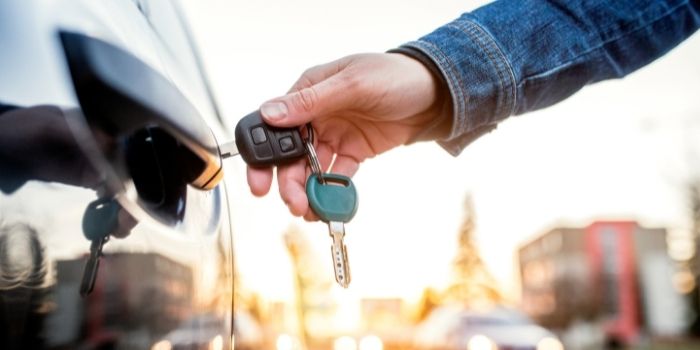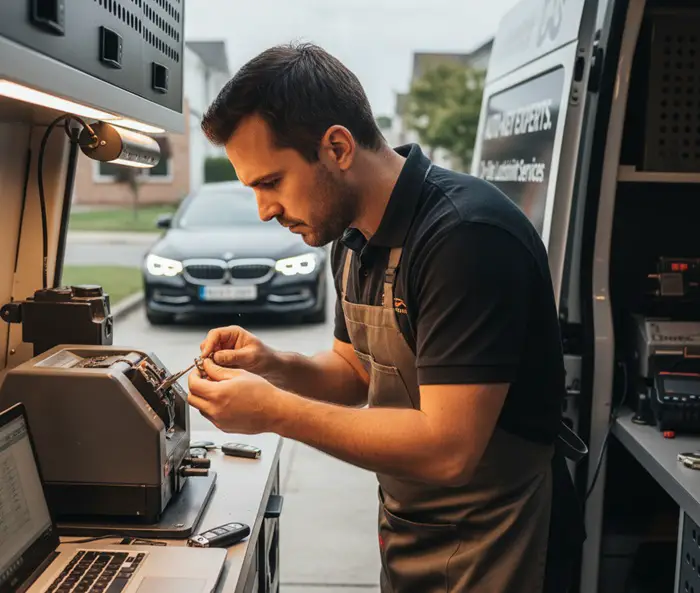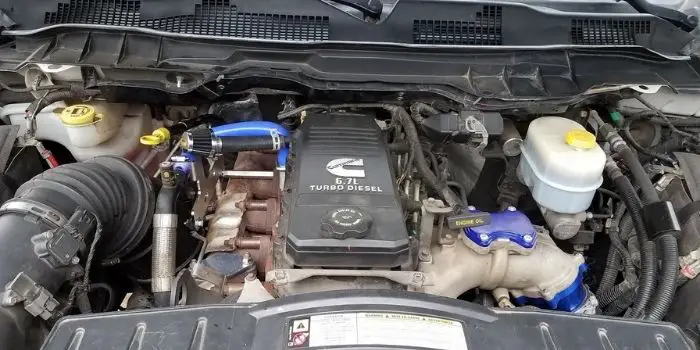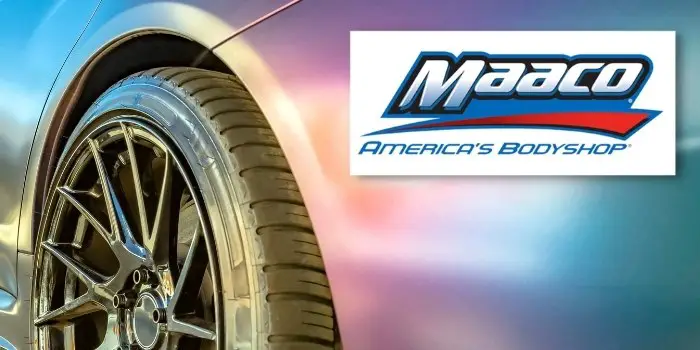
Losing your car keys is one of life’s little panic-inducers—right up there with realizing you sent the message to the wrong group.
Thankfully, professional locksmiths are the calm, socket-wrench-and-software-equipped heroes who can make new keys without the original.
But how exactly do they do it?
Spoiler: it’s part mechanical detective work, part precise cutting, and part electronics wizardry.
Locksmiths Making a Car Key Without the Original
As a first step, a reputable locksmith will always ask for proof of ownership and ID. That’s not them being awkward—it’s legal and ethical protection for you and them.
Expect to show your driver’s license and vehicle documents (registration or title).
If you can’t prove you own the car, many locksmiths won’t help—rightly so. This prevents car theft and keeps everyone on the right side of the law.
The next step involves identifying the car key type. Since not all keys are created equal, the method depends on what kind of key your car uses:
- Basic mechanical key – A simple metal key that turns the lock/ignition.
- Transponder key – Has a chip in the plastic head that communicates with the car’s immobilizer.
- Laser-cut / sidewinder key – Precision-cut key with a high-security profile.
- Smart key/proximity fob – Keyless entry and push-button start; often needs specialized programming.
A quick look at the lock, ignition, or what the owner remembers about the key type saves time.
After these steps, here are various ways that can be used by locksmiths for making keys for old and new car locks without the need for the original.
1. Key Code from VIN or Manufacturer Records
If the car’s VIN or key code is available (sometimes stamped on documents or retrievable from the dealer), locksmiths can order or cut a key using that code.
The key code tells cutting machines the exact depth and spacing for each cut. This is fast and highly accurate—when the code exists.
2. Decoding the Lock or Ignition Cylinder
When no code is available, locksmiths can decode the physical lock.
They use specialty tools to read the positions of the internal wafers or pins and calculate the cut depths.
This is like reverse-engineering the lock and works for many domestic and older vehicles.
3. Impressioning (Old-School but Effective)
Impressioning is a hands-on technique where a blank key is inserted and twisted; the locksmith polishes and files high spots where the lock marks the blank.
Repeat until the blank matches. It’s tactile, time-consuming, and a real locksmith craft—useful when other data is missing.
4. Removing the Lock Cylinder
For stubborn cases, removing the cylinder and decoding it at a bench gives full access to the keying.
That’s more invasive (and sometimes costly), but it’s reliable for complex locks.
5. Using Code-Cutting Machines & CNC Cutters
Modern locksmith shops have CNC or automated key-cutting machines.
Once they have the key code (or decoded measurements), the machine cuts to exact specs—especially important for laser-cut keys that need millimeter precision.

DIY vs Professional: When to Call the Locksmith?
If you have a spare blank and some mechanical skill, cutting a simple key might be doable at a hardware store—or by a self-service key cutter.
But there are good reasons to call a pro:
- Immobilizer systems and smart keys require programming tools and knowledge.
- Laser-cut and high-security keys need precise machines and blanks that aren’t sold at every kiosk.
- You want a guaranteed start: Locksmiths typically validate that the key works before charging—or offer a warranty on their work.
- Avoid damage: Amateur attempts can damage doors, ignitions, or electronics—costly repairs compared to a locksmith fee.
How Much Does a Locksmith Cost to Make a Car Key?
The price of a replacement key depends largely on your car’s make, model, and the type of key required.
A standard mechanical key is usually the cheapest option and can often be cut on-site within an hour.
Keys with transponders, which need programming to communicate with your car’s immobilizer, cost more and may take additional time if specialized tools are required.
High-security or smart proximity fobs sit at the top of the price range since they often involve ordering parts or using dealer-level software.
On average, a simple key cut might run between $50–$100, while electronic keys and fobs can climb into several hundred dollars.
Locksmiths may also charge call-out fees if they come to you, so it’s wise to confirm total costs beforehand.
If you’re dealing with a damaged lock rather than a lost key, rekeying is generally more affordable than full replacement.
Still, when a lock is heavily worn or broken, swapping it out entirely may save money in the long run by preventing recurring issues.

Programming the Electronics: Transponders, Remotes, and Smart Keys
For cars with immobilizers and key chips, cutting the metal is only half the job. The transponder chip must be programmed to the car’s immobilizer so the engine will start.
- Simple cloning: Some locksmiths can read your existing chip (if you have one) and clone it to a new key or fob.
- On-car programming: Many transponder keys are programmed using the car’s OBD port or manufacturer protocols. Locksmiths use diagnostic tools to sync the new key to the vehicle.
- Dealer-level programming: Some smart keys or encrypted systems require manufacturer-level tools or access, meaning the dealer might be the only option.
Modern smart keys (proximity fobs with rolling codes) often need advanced programming and sometimes module replacement.
A good locksmith will tell you upfront whether they can program it on-site or if the dealer is unavoidable.
Simple Precautions to Ensure You Don’t Get Caught Without Your Car Keys Again
Nothing feels worse than staring at your locked car while your keys are sitting smugly inside—or worse, completely gone. While locksmiths can save the day, a little foresight can keep you from needing them so often.
First, do yourself a favor and stash a spare key in a reliable spot—whether that’s at home, with a trusted relative, or even in a discreet key-safe attached to your house.
If you’re the type who misplaces things often, a smart key vault or coded lockbox might be worth the investment. It’s like a safety net for the forgetful.
For an extra layer of protection, consider key insurance or roadside assistance plans that cover locksmith services.
They’re inexpensive compared to the panic (and cost) of an unexpected lockout.
Finally, keep your VIN details and key registration info in order—either through your dealer or with your important car documents—so replacement is smoother if things ever go south.
Think of it this way: lost key locksmiths are great backup heroes, but prevention makes you the real MVP.
Do’s:
- Keep a spare key in a secure but accessible place (not inside your car!).
- Share a copy with someone you trust—better safe than stranded.
- Label spare keys discreetly (no big “CAR KEY” tags that scream “steal me”).
- Enroll in roadside assistance or key insurance for peace of mind.
Don’ts:
- Don’t hide your spare under the wheel well or bumper—thieves know those tricks.
- Don’t ignore signs of a weak or fading smart key battery.
- Don’t toss your only spare key into a drawer and forget about it.
- Don’t rely on your phone’s “I’ll remember where I put it” notes—you won’t.
Final Thoughts
Losing your car keys can feel like the beginning of a nightmare, but thanks to modern locksmiths, it’s usually just a minor detour.
Whether it’s cutting an old-school mechanical key, programming a transponder, or syncing a high-tech smart fob, today’s locksmiths blend craftsmanship with computer skills to get you back behind the wheel.
Many can even open your car in minutes using specialized tools like a slim jim or electronic devices for newer models.
Remember, costs and methods vary—sometimes they’ll make a new key from your VIN, other times they’ll dismantle a lock to create an imprint.
The key (pun intended) is to choose a licensed, experienced locksmith who’s transparent about pricing. That way, what starts as a panic moment ends as a quick “back in business” story.
A little planning—like keeping a spare or registering your keys—can also save you from future stress.

Based in Orem (Utah) John Paterson graduated from Utah Valley University and has begun writing in 2009. He has a large wealth of experience in writing articles related to cars, automotive repair, wheels, cleaning/maintenance, and much more. He has also written instructional articles in a similar niche for a few online publications as well. Currently, he works as a mechanic in his personal garage shop where he loves serving his countrymen from his heart.




